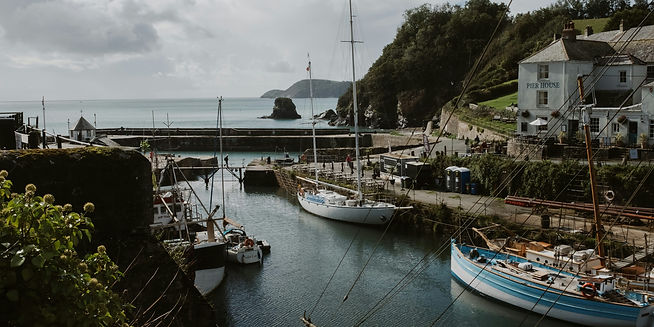is it safe to visit Cornwall?
September 7, 2025 at 10:20:59 PM

Cornwall, located in the southwestern tip of the UK, is famous for its dramatic coastline, charming fishing villages, and scenic countryside. It attracts millions of tourists each year who come to enjoy its beaches, historic sites, and cultural attractions. If you’re planning a trip to Cornwall, you may wonder about safety—both in terms of crime and natural hazards. This guide will explore the safety of visiting Cornwall, including crime rates, road safety, beach and water precautions, weather considerations, and health tips to help you enjoy your trip with confidence.
1. General Safety and Crime
Cornwall is generally considered one of the safer regions of the UK for tourists. Violent crime is rare, and most visitors experience a trouble-free stay. Petty crime, such as pickpocketing, may occur in crowded areas, particularly around popular tourist spots like St Ives, Newquay, and Falmouth.
Tips for staying safe:
* Keep personal belongings secure, especially in busy towns or on public transport.
* Avoid poorly lit areas at night and stick to main streets.
* Use hotel safes for valuables when available.
* Be cautious when using ATMs in public areas.
Local police and tourist information centers are approachable and helpful if you encounter any issues. Emergency services in Cornwall are reliable and reachable via 999 in the UK.
2. Road Safety in Cornwall
Many visitors explore Cornwall by car to fully enjoy the countryside and coastal routes. Roads in Cornwall can be narrow and winding, especially in rural areas, so extra caution is advised.
Safety tips for driving:
* Drive slowly on single-lane roads and watch for oncoming traffic.
* Be prepared for sudden changes in weather, including fog or rain, which can make roads slippery.
* Use GPS or maps, as mobile signal can be unreliable in remote areas.
* Watch out for cyclists and pedestrians, especially in towns and near scenic spots.
* Parking is generally available at major attractions, though some areas may require paid parking or early arrival for popular beaches.
Public transport options like buses and trains are safe but may have limited schedules in rural areas, so plan accordingly.
3. Beach and Water Safety
Cornwall is famous for its beaches, from the surfing hotspot of Newquay to the calmer sands of Porthcurno. While beaches are generally safe, natural hazards exist, including strong tides, riptides, and sudden waves.
Tips for safe beach visits:
* Swim only in designated areas and follow local lifeguard instructions.
* Avoid swimming alone, particularly in areas with strong currents.
* Check tide schedules before exploring rock pools or coastal paths.
* Wear appropriate footwear when walking on rocks or cliffs, which can be slippery.
* Respect signs indicating hazardous areas or wildlife protection zones.
Water sports such as surfing, kayaking, and paddleboarding are popular but should be approached with safety equipment and awareness of local conditions. Surf schools and rental centers often provide safety guidance.
4. Hiking and Coastal Walk Safety
Cornwall offers some of the UK’s most scenic coastal walks, including the South West Coast Path. Hiking along cliffs and remote areas is generally safe but requires common-sense precautions.
Safety tips for walkers:
* Stick to marked trails and avoid cliff edges.
* Check weather forecasts before heading out; strong winds or rain can make paths dangerous.
* Wear sturdy footwear and carry water, snacks, and a mobile phone.
* Let someone know your planned route, especially if exploring remote areas.
* Beware of loose rocks, sudden drops, and slippery surfaces, particularly near waterfalls or coastal cliffs.
Many coastal paths are well-maintained, but natural hazards remain, so preparation is key.
5. Weather and Seasonal Considerations
Cornwall enjoys a mild climate, but weather can change quickly due to its coastal location. Rain, fog, and strong winds are possible even in summer.
Tips for safe travel in all seasons:
* Bring layered clothing and waterproof jackets.
* Avoid walking or driving in severe weather warnings issued by the UK Met Office.
* Summer crowds may increase petty crime risk, so remain vigilant.
* Winter visits may require caution on icy or muddy trails.
Planning trips around local weather forecasts ensures a safer and more enjoyable experience.
6. Health and Emergency Services
Health services in Cornwall are reliable but can be limited in remote areas. Hospitals and clinics are available in major towns, and pharmacies are widespread.
Tips for staying healthy:
* Carry travel insurance covering medical emergencies.
* Bring any necessary medications and prescriptions.
* Know the location of the nearest hospital or urgent care center, especially when staying in rural areas.
* Keep hydrated, use sunscreen, and be cautious of jellyfish or other minor wildlife hazards while swimming.
Emergency services can be reached by dialing 999 for police, fire, or ambulance in the UK.
7. Tips for Safe Travel in Cornwall
* Stay in reputable accommodations with good reviews.
* Avoid walking alone at night in isolated areas.
* Use marked crossings and obey traffic rules, especially for cyclists and pedestrians.
* Keep an eye on belongings in busy tourist spots.
* Follow local guidelines for outdoor activities, wildlife interactions, and water sports.
Overall, Cornwall is considered safe for tourists who exercise standard precautions and respect local rules.
8. Conclusion
Cornwall is one of the UK’s safest destinations for travelers, offering stunning scenery, historic villages, and a welcoming atmosphere. While no destination is completely risk-free, the main concerns—petty crime, road safety, coastal hazards, and weather—can be easily managed with preparation and awareness.
Visitors who follow simple precautions can enjoy Cornwall’s beaches, cliffs, towns, and countryside safely. From exploring the iconic Land’s End to walking coastal paths, surfing in Newquay, or visiting charming fishing villages, Cornwall offers memorable experiences for all ages without significant safety concerns.
Whether traveling solo, with friends, or with family, Cornwall is generally safe, and by following these guidelines, your visit can be both enjoyable and worry-free.

